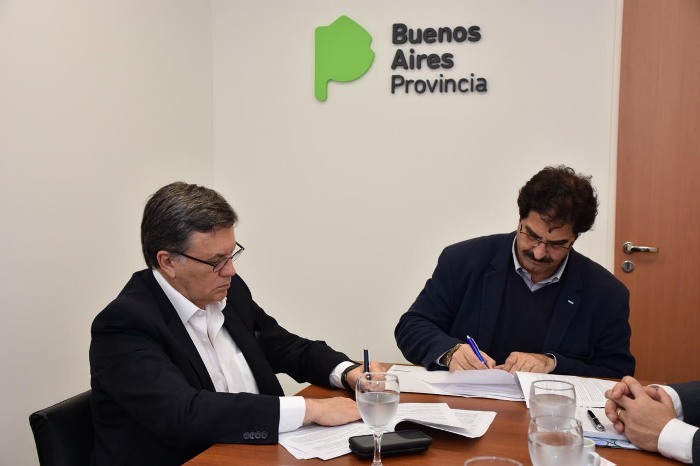The agreement between the Institute and Buenos Aires’ Ministry of Agroindustry will seek to strengthen the capacity of players in the agrifood sector, providing them with the tools needed to access markets in a sustainable manner.

San José, 19 September 2018 (IICA). The Director General of the Inter-American Institute for Cooperation on Agriculture (IICA), Manuel Otero, signed an agreement with Leonardo Sarquís, the Minister of Agroindustry of the Province of Buenos Aires, that will facilitate joint action to train small- and medium-scale agricultural producers, in order to increase their competitiveness and to encourage innovation in the rural areas of Argentina’s major province.
On signing the letter of understanding, Otero remarked that, “The signing of the agreement with the Buenos Aires Ministry of Agroindustry is an indication of the real possibility of collaborating on the issues of sustainable development and inclusion in family farming in one of the most productive areas of Argentina.”
Buenos Aires is the wealthiest province in Argentina, with the largest population, and accounts for more than 38% of the total land area under cereal cultivation in this South American country, and approximately 40% of its total production. Wheat, corn, sunflower and barley are the primary crops, according to official figures, whereas, as far as livestock rearing is concerned, 37% of Argentina’s cattle stock is concentrated in this area.
By way of this agreement, Otero and Minister Sarquís have made a commitment to work together to build the regional economies of the Province, with a focus on the competitiveness of the agroindustrial and agrifood sector.
The agreement also seeks to strengthen the capacities of players in the region’s agrifood sector, such as technical officers and producers, providing them with the tools they need to access markets in a sustainable manner.
More information:
Sonia Novello, Communication Specialist, IICA Delegation in Argentina











